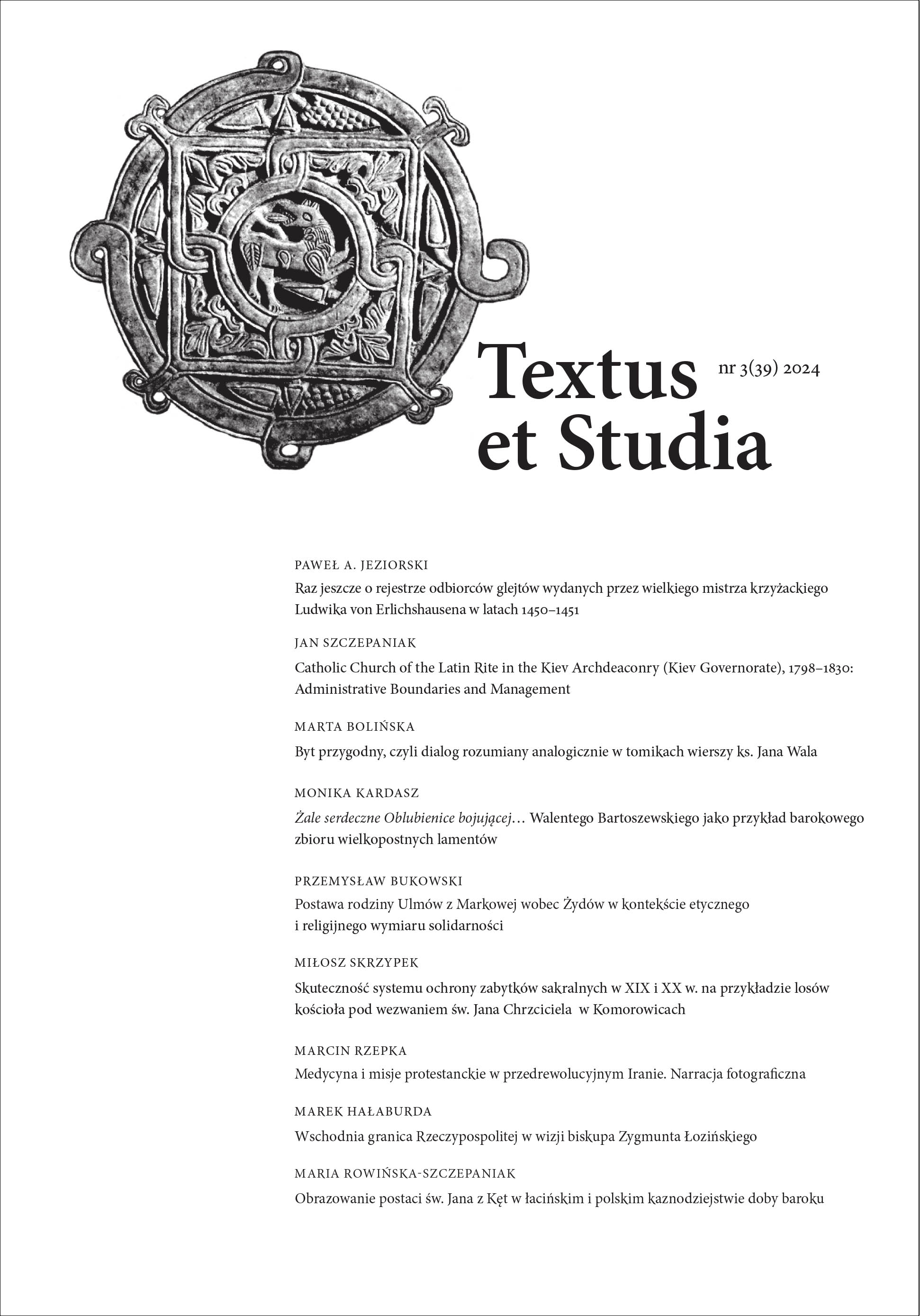The attitude of the Ulma family from Markowa towards the Jews in the context of the ethical and religious dimension of solidarity
DOI:
https://doi.org/10.15633/tes.10305Keywords:
solidarity, the Ulma Family, Christians, Jews, HolocaustAbstract
The aim of this article is to demonstrate that, in its deepest dimension, solidarity is expressed through compassion and the willingness to help another person, especially in situations of undeserved suffering. Such solidarity was exhibited by the Catholic family of Wiktoria and Józef Ulma from Markowa towards Jews during World War II in Poland. During the German occupation, they consciously risked their lives, aware of the severe penalties, by helping Jewish escapees. For providing shelter in their home, the Ulmas paid with their own lives.
The article describes the historical and social context of those events and characterizes the idea of solidarity. Based on a review of the literature, the thesis is posited that the Ulmas’ inspiration to express solidarity towards Jews was primarily ethical and religious in nature. The analysis highlights the assumption that Christians and people of Jewish origin are primarily united by their shared humanity. The Ulmas’ solidarity with Jews was manifested not only in providing shelter, food, and working together but, most importantly, in moral community and shared death in solidarity.
Downloads
Published
Issue
Section
License

This work is licensed under a Creative Commons Attribution 4.0 International License.
Authors who publish with this journal agree to the following terms:
- Authors retain the copyright and full publishing rights without restrictions, and grant the journal right of first publication with the work simultaneously licensed under a Creative Commons Attribution 4.0 International License that allows others to share the work with an acknowledgement of the work's authorship and initial publication in this journal.
- Authors are able to enter into separate, additional contractual arrangements for the non-exclusive distribution of the journal's published version of the work (e.g., post it to an institutional repository or publish it in a book), with an acknowledgement of its initial publication in this journal.
- Authors are permitted and encouraged to post their work online (e.g., in institutional repositories or on their website) prior to and during the submission process, as it can lead to productive exchanges, as well as earlier and greater citation of published work (See The Effect of Open Access).

